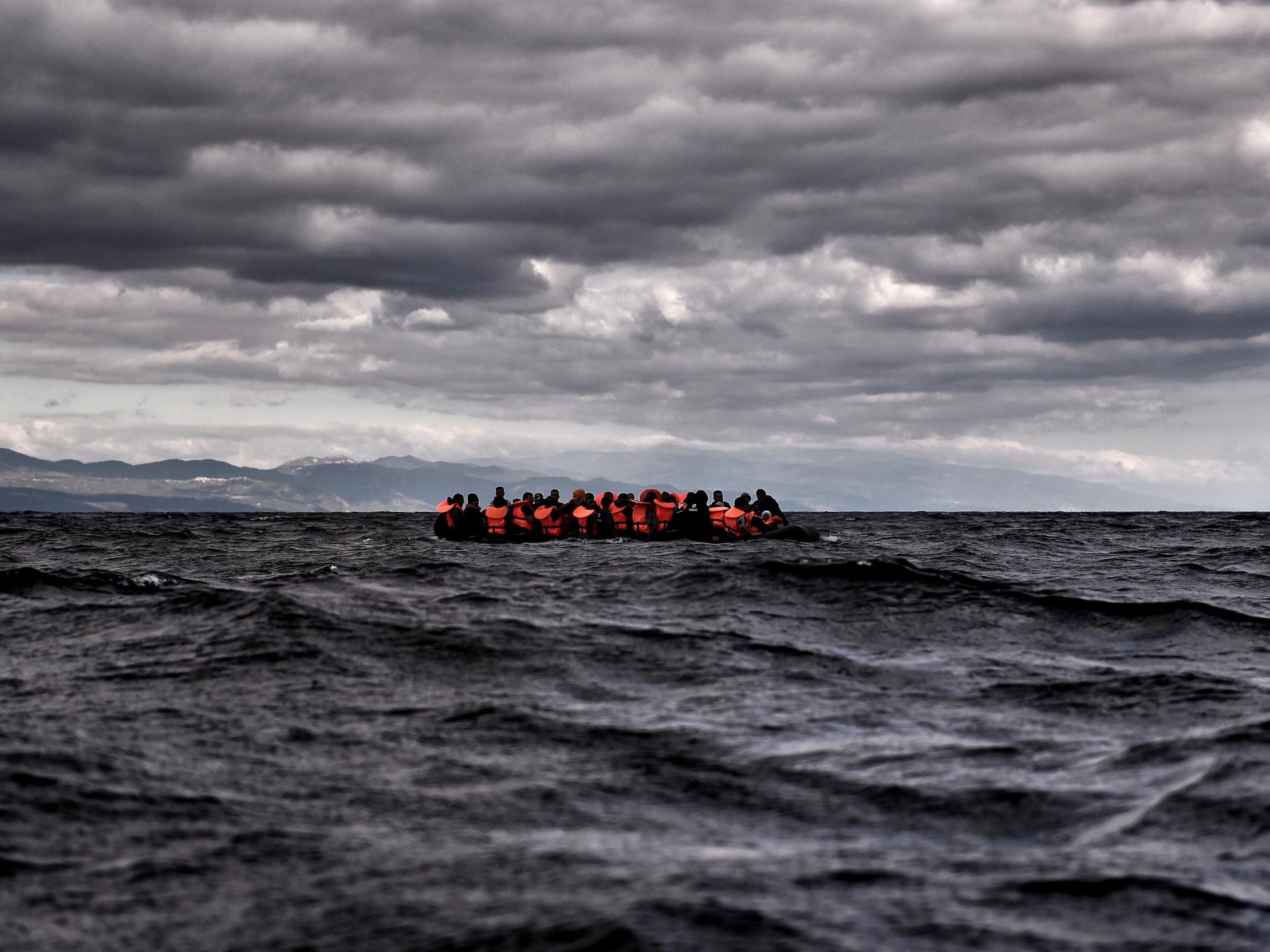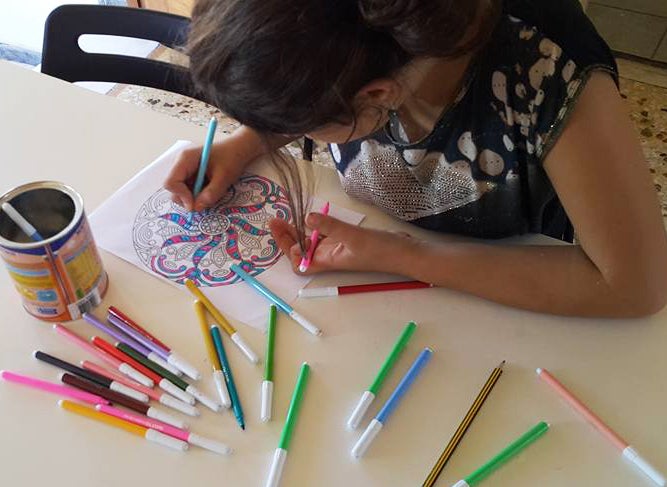Refugee girl whose family drowned in Mediterranean deported from Sweden after turning 18
Yara lost her parents and siblings during the 2015 refugee crisis. Her case has been described as ‘a living example of Europe’s inhumanity’, writes Samuel Lovett


Yara* was close to turning 14 when her parents and three younger siblings drowned in the Aegean Sea.
The family, originally from Afghanistan, was one of many that had sought to make the treacherous crossing from Turkey to Lesvos on 28 October 2015. The voyage ended in shipwreck and tragedy, with almost 70 people lost to the waves.
That autumn day would mark the beginning of Yara’s long and traumatic journey through the bureaucracy of modern Europe, in which those born outside the continent’s borders are casually dismissed and dehumanised.
Along with the thousands of others who sought refuge during the height of the 2015 crisis, she has been repeatedly relocated, rejected and deported in the five years that have passed.
And as Covid-19 continues to sweep across the globe, exacerbating the vulnerabilities of those seeking and awaiting asylum, her future remains as uncertain as ever.
Yara remembers little of the month she spent on the Greek island of Lesvos. She knows she slept beneath an open sky, had only dirty water to drink, and was comforted by the featureless ranks of fellow survivors and humanitarian workers. “I have tried to forget it all,” she says. “I died on that island.”
She never gave up hope of her family appearing on the island, though. “I was waiting for them,” she says. “I was thinking I would still find them. I was in so much pain.”
After the shipwreck, Yara was flown from Lesvos to mainland Greece in November 2015 – suffering from severe PTSD, she could not endure travelling by sea – and first placed in a residential facility for unaccompanied minors in Athens. Alone and unable to speak Greek, she lapsed into grief when attempting to discuss with others what had happened to her parents and siblings, whose bodies to this day have never been found. Due to the emotional distress, Yara was later moved by METAdrasi, a humanitarian NGO based in Greece, to a foster family’s house. She remained there for the next year and a half.
During this period, Yara reached out to a second aunt on her mother’s side, Christine*, who lived in Stockholm and made it clear that she could provide a home. As METAdrasi pushed the Swedish authorities to facilitate a reunification, Yara spoke almost daily with Christine. The prospect of a new life in Sweden slowly crept into vision.
“It opened up hope for me that I could have family again,” she says. “We shared something, a background. Talking to her helped give me a goal in life again.” Christine and her aunt's two children were the only relatives she had left. There was no one to care for her in Afghanistan; her family had first fled the country due to fears that her journalist father would be assassinated by the Taliban. With Christine, Yara had the chance to start over.
When her refugee passport was approved by the Greek Asylum Service in November 2017, finally allowing her to travel to Sweden, Yara was overjoyed. It wasn’t long before she flew to Stockholm to be with her new family.
“When I was on the plane, I was counting down: two hours, one hour, 30 minutes,” she says. Upon arrival, Yara remembers breaking down with her aunt and second cousins, with whom she had already made friends during her time in Afghanistan. “I remember I cried when I got there – I was so happy. It was the first family I saw after 2015. It was the first good thing in my life and I will not forget it.”
Yara immediately settled into her new life. “From the beginning I was so at peace, after [everything that happened in] 2015,” she says. She began learning Swedish with her cousins and was enrolled at a local school in the capital. “I had a different energy to learn Swedish that I never had for Greek,” she laughs. “When I started school, I got better and better. I was really proud of that.”
She believed then that a bright future lay ahead, that Sweden “made me a different Yara”. “I was so active, I was out all day at school with friends and then with cousins at night, with my aunt,” she says. “I became completely different. I had a new energy. I felt I had a future and purpose.”

Over the next two years, attempts were made to legalise her status in Sweden. She applied for asylum three times, but each time was rejected. A citizen in all but name, the authorities said Yara could not live permanently in the country on the grounds that the relation to her second aunt was too distant. It meant she was denied the right to reunification with family that would have been hers under the Dublin Regulation EU laws.
The letter demanding her departure from Sweden came at the beginning of 2020, as soon as she turned 18. The country that had offered her hope of a new beginning had now snatched this lifeline away.
“I remember I cried so much in my room because it was like a dream,” she says. “I didn’t make a mistake. Some people in Sweden break the law – I didn’t do this. I did nothing wrong. I only wanted to be a good citizen, I wanted to work there. I applied to work for three months in the summer but they didn’t allow me.”
Yara had just two months left of school and long-term plans of working in humanitarian aid – caring for children who had suffered as she had – but it didn’t matter. On 20 February this year, she was deported back to Greece, a country still stretched to the limit by the ongoing refugee crisis, where thousands of unaccompanied and separated children live in detention facilities and makeshift camps due to a shortage of shelters.
Calls have grown to relocate these youngsters during the pandemic, with the likes of Luxembourg and Germany agreeing to take in those who meet certain criteria, but few other countries have stepped up to play their part.
For now, Yara is staying with her old foster family, who agreed to take her in, but it remains unclear what comes next. “I’m trying to reintegrate but from the beginning I didn’t really know how to start,” she says. “I don’t know what to do with the studying, I struggle with the language. I’ve lost my purpose.”
Lora Pappa, president of METAdrasi, says that her case is “a living example of the inhumanity of Europe”. “After all the pain she had suffered, she is being deprived of hope yet again,” she tells The Independent. “It is completely incomprehensible to her why, despite all her efforts to be integrated into Swedish society and act as a model citizen, Sweden decided to reject her.”
The Migration Court in Stockholm told The Independent that Yara’s application for residence was “inadmissible” as she had already been granted international protection by Greece. “After the decision became legally binding she had no legal right to stay in Sweden,” a spokesperson said. “She never had Swedish citizenship but she was allowed to live here, and as a minor she had the right to attend school while her application was being processed.”
As all countries struggle with a global crisis in the form of the Covid-19 pandemic, the migration crisis that briefly gripped the world’s attention in 2015 is still making its presence felt in the day-to-day struggles of people like Yara.
In some ways, the pandemic has worsened the situation for those migrants still making dangerous journeys – there were 26,845 sea arrivals in 2020, according to the UN, despite the EU declaring the Mediterranean migration crisis “over” early last year – with appeals for asylum placed on hold and support services suspended.
But with reports also drawing attention to the risk of coronavirus spreading in the squalid conditions of migrant detention camps, activists hope the Covid-19 crisis also holds the potential to illuminate Europe’s flaws and highlight how we are failing those fleeing adversity. Whether or not a kinder, better world is carved out after the pandemic remains to be seen. Hope, it seems, is the only relief. “I was born again in Sweden,” says Yara. “I pray to return one day.”
*Names have been changed to protect identities
Join our commenting forum
Join thought-provoking conversations, follow other Independent readers and see their replies
Comments
Bookmark popover
Removed from bookmarks